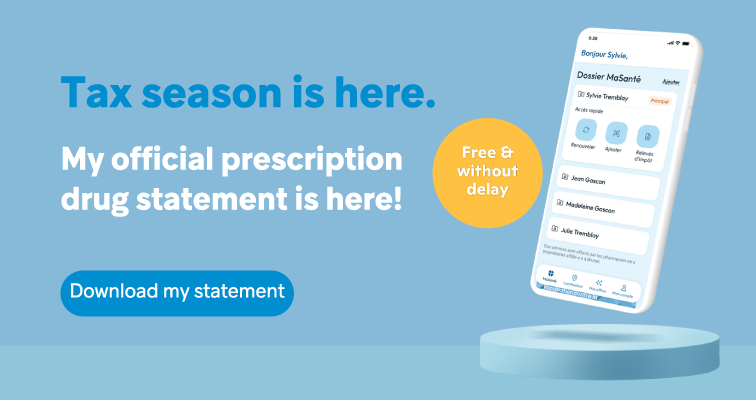Have you had enough of these emotional tidal waves? Indeed, living with bipolar disorder can sometimes seem like an adventure in the high seas. But have no fear: there are ways to rescue you, as well as your loved ones, from these troubled waters.

When bipolar disorder makes you lose control
Living with bipolar disease is not always easy, and this is true for both the person affected by the disorder and for his or her loved ones. Do you feel like your mind is constantly racing, a jumble of thoughts and emotions? Are you losing sleep, or having to stop just to catch your breath? Are your friends and family telling you that your behaviour seems odd, and expressing that they are worried about your health? These symptoms may indicate that you are suffering from an illness known as bipolar disorder, which used to be called “manic-depression.” It might be time for you to consider seeing a doctor and to begin treatment in order to regain control.
The consequences of inadequate treatment
People who suffer from bipolar disorder experience alternating manic episodes followed by depressive episodes, and vice versa. Untreated, bipolar disorder can cause extreme mood swings, as well as emotional stress for family members and friends. According to Statistics Canada, only 27% of people with bipolar disorder are getting adequately treated. Often, people who are having a manic episode don’t see the need to get treatment because they are feeling good. During a depressive episode, however, the person experiences major uneasiness and distress, and often can’t function normally. It is important to understand that if you don’t get the appropriate treatment, your mood swings can become more frequent and more severe. Not getting adequate treatment can also lead to several consequences, including:
- conjugal or family issues;
- deteriorating relationships with friends and work colleagues;
- isolation;
- work absenteeism;
- job loss;
- irrational spending or financial decisions that could be problematic;
- abuse of alcohol or drugs;
- physical symptoms (ex: pain);
- hospitalization;
- increased risk of suicide.
Medication
Medicinal treatments that are given to people who suffer from bipolar disorder allow them to experience less symptoms, to extend remission periods (during which the person is neither manic nor depressive), to increase quality of life (as well as that of loved ones) and to lessen the consequences of the illness.
You can become the “captain of your ship” again by taking the right medication, as prescribed by a doctor. In combination with lifestyle changes and psychotherapy, medication can make a world of difference and allow you to manage your disorder, its symptoms and its consequences.
The most commonly used medications for treating bipolar disorder are mood stabilizers, which maintain your mood at normal levels. It is very important to follow your doctor’s and pharmacist’s instructions to the letter. It is also imperative to never stop taking medication abruptly, or to abandon your treatment without having discussed it first with your health professional. Many people cease their treatment because they are feeling better and are not experiencing the effects of illness. Thus, they assume that medication is no longer necessary. Don’t let yourself be misled; the consequences of such a decision could be disastrous.
It is possible that your doctor may prescribe other types of medication to treat related symptoms, such as insomnia or anxiety.
You may experience certain adverse effects of medication. For example:
- nausea;
- vomiting;
- abdominal pain;
- diarrhea;
- drowsiness;
- trembling;
- weight gain.
If you are experiencing any unusual symptom, speak to your pharmacist as soon as possible. He or she will advise you on what to do.
Your pharmacist, your guide
Just like a compass, your pharmacist can point you in the right direction in terms of medication. He or she can answer your questions and help you evaluate the advantages and disadvantages of each treatment option. In addition, your pharmacist can closely follow your response to the treatment, encourage you and help you stay on course. Ask as many questions as you need; you can count on his or her expertise, experience and ear.
If living with bipolar disorder is affecting your relationships with loved ones, hindering your ability to function on a daily basis or exposing you to risks or embarrassing situations, don’t wait any longer. Seeing a doctor and taking medication are not signs of weakness; on the contrary, they show your strength of character and willingness to be the best that you can be, not just for your own good, but also for those around you. Don’t let bipolar disorder rule your life; take charge and, once the storm has passed, you’ll be proud of how far you’ve come!
